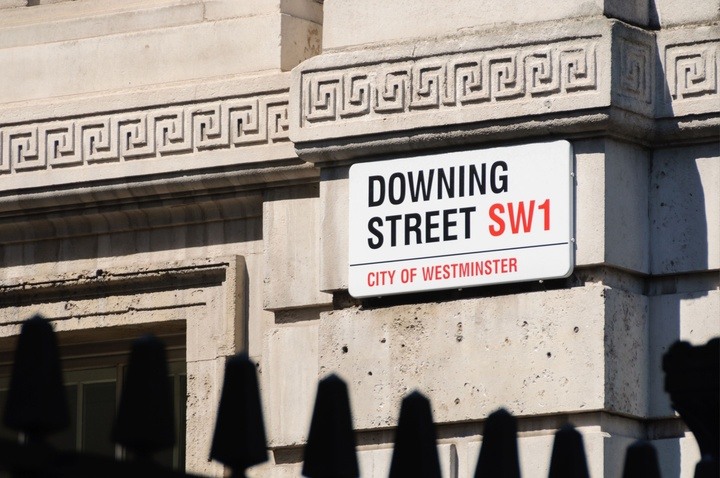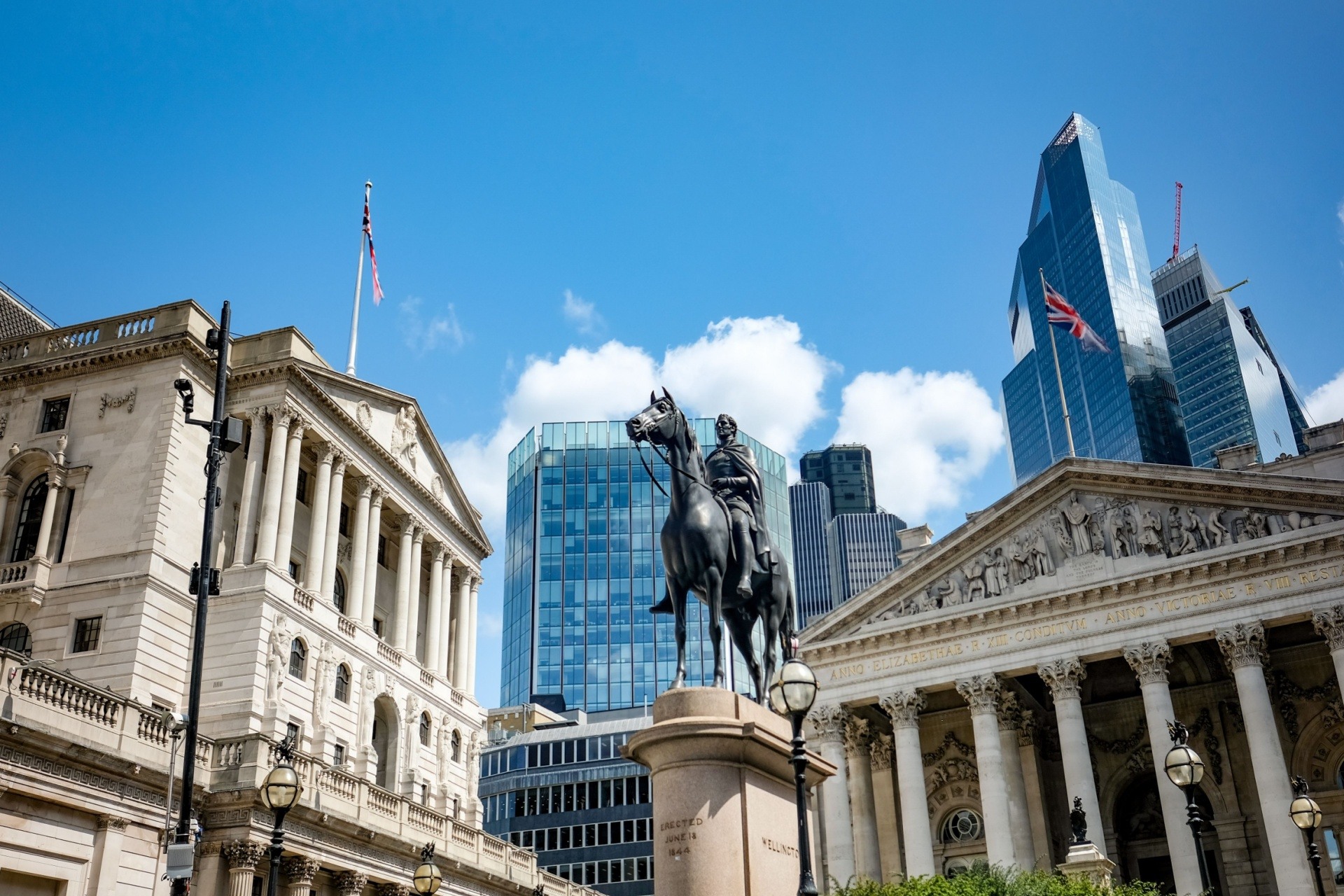Weekly Briefing: Labour's Potential CGT Overhaul, Potential UK Stability Under Starmer, Pound Gains on Housing Plans, and AI-Driven Venture Funding Surge
This week, we delve into the potential tax changes under a Labour government, the expected newfound political stability predicted by some market experts, the pound's recent rally following new economic growth initiatives and the rising trend in global venture funding driven by AI investments.
UK Economy
Possibility for Capital Gains Tax Changes
- Labour has outlined revenue-raising measures, including higher taxes on North Sea oil and gas producers along with imposing VAT on school fees, but these are minor in the context of overall government spending.
- Current speculation is that Labour might increase capital gains tax (CGT), leading wealthy individuals to preemptively sell assets such as shares and property.
- CGT currently applies to most personal possessions worth £6,000 or more, second homes, shares not held in an ISA, and business assets among other taxable assets. It is worth noting that the tax also applies to primary residences if the property has been let out or used for business.
- Rachel Reeves, Labour's chancellor, previously called for aligning CGT rates with income tax rates, potentially raising £8-16 billion for the Treasury.
- Commenting on the speculated rise in CGT rates, a credited wealth manager said, "You could see a brain drain of people who are building businesses, creating jobs and have already paid significant amounts of tax in the UK."
- With the potential rise in CGT being the main tax change that could hit UK investors the hardest in the coming months and years, for investors to protect their hard-earned capital, CGT-minimising vehicles such as tax-efficient investment will become increasingly important.
Political Landscape
Stability Under Keir Starmer? Recent Market Insights
- Prime Minister Keir Starmer, with a commanding 411 seats in the House of Commons, is hoping to bring political stability to the nation after a period of turbulence with three prime ministers and five chancellors since 2019.
- Rachel Reeves, a former Bank of England economist and now Chancellor, is widely expected to deliver fiscal responsibility. Consequently, markets have responded positively, although some believe Labour's election victory was "already priced in."
- Azad Zangana, senior European economist & strategist at Schroders, has highlighted that such a large Labour majority should reduce political instability, allowing businesses and investors to better anticipate policy changes.
- Paras Anand, Chief Investment Officer at Artemis Investment Management, has echoed this sentiment, believing the UK may now be seen as a beacon of political stability compared to the US and France. "This dramatic pendulum swing could mean a material reassessment of the value of UK assets," he said.
- Another optimistic industry figure, Craig Inches, Head of Rates and Cash at Royal London Asset Management, stated that despite long-standing growth challenges, the UK could become "the best-looking pig in the sty" among major developed economies.
- However, not all commentators have been so optimistic. Lloyd Harris, Head of Fixed Income at Premier Miton Investors, has cautioned that Labour’s growth plans, especially during full employment, might lead to higher borrowing costs. Earlier this week he noted that tying the minimum wage to the cost of living could entrench inflation.
- Though there is a sense of cautious optimism growing among certain individuals following the recent polls, recent market insights show some are more sceptical of the economic impacts of the impending Labour government than others.
- If the UK experiences a period of increased growth and stability under Keir Starmer's government, the nation could see a significant rise in foreign direct investment (FDI), largely due to the UK being positioned more favourably compared to other countries seeking to restabilise their economies and political situations. However, as ever, long-term impacts remain uncertain and will depend on the implementation and effectiveness of Labour's policies.
Currency and Investment
The Pound Rallies on Growth Plans
- The pound recently hit its highest level in nearly a month following Chancellor Rachel Reeves' announcements to boost house building, unblock infrastructure projects, and attract private investment.
- Sterling rose 0.2% against the dollar, reaching $1.284, and similarly against the euro, hitting 84.4p.
- Reeves outlined plans to reinstate mandatory housing targets and lift the ban on new onshore wind developments in England, which were seen as pivotal moves for economic growth.
- Anna Leach, Chief Economist at the Institute of Directors, praised the focus on long-term stability and growth. "The Chancellor is right to focus on the need to deliver stability and growth for the long-term," she said.
- Head of Money and Markets at Hargreaves Lansdown, Susannah Streeter, noted that the pound's jump reflected traders' positive assessment of the potential economic boost from Reeves' policies.
Venture Funding
AI Dominates Global Venture Funding
- Global venture funding increased 8% quarter-over-quarter to $65.7 billion in Q2 2024, although deal volume continued to decline, marking the ninth consecutive quarter of reduced deal numbers.
- AI startups captured 28% of all VC funding in Q2 2024, attracting $18.3 billion, a 32% increase from the previous quarter. Notable investments included Elon Musk's xAI and other prominent firms like Scale and CoreWeave.
- The US and Europe each accounted for 39% of global exits, including high-value IPOs from Tempus (an AI-enabled medical service), Rubrik, and Hyundai's acquisition of Motional for $4.1 billion.
- Conversely, venture funding in Asia fell 13% quarter-over-quarter to $9.7 billion, with significant declines in China but increases in India, Singapore, and Japan.
- "As we cross the midpoint of 2024, AI startups continue to steal the show — while the rest of the venture ecosystem stumbles," reported CB Insights.
- It is clear to see how AI is leading the way, not just in venture capital but also in increasing business productivity. Embraced throughout GCV and our portfolio, by leveraging AI to enhance operations, the companies we support are even better positioned for accelerated growth and success in the evolving market landscape.
Final Note
Reflecting on an eventful past week, not just across Britain’s political landscape but also its economic and investing outlook, overall economic signs appear positive with increased investor confidence as a result of the UK's stability and growth prospects.
The claimed political stability under Starmer's leadership could provide a more predictable environment for businesses and investors. This potential for stability, coupled with the government's commitment to economic growth through infrastructure development and renewable energy projects, bodes well for the UK's long-term economic health. We’ll be closely monitoring how these developments unfold over the coming months.
But regardless of your thoughts or predictions regarding the success of Britain’s new leaders, the potential for a rise in CGT is slowly looking like more of a reality, and planning for this eventuality is crucial. Our Investor guide to tax-efficient investing covers the most effective strategies available in the UK to help mitigate CGT, income and inheritance tax.
At GCV, we remain committed to providing the latest insights into the investment and wider economic landscape in order to support investors in making well-informed decisions when choosing where to allocate their capital.
If you would like to find out more about a number of tax-efficient investment strategies available to UK investors, discover our range of downloadable resources here.
%20(3)%20(2).jpg)








